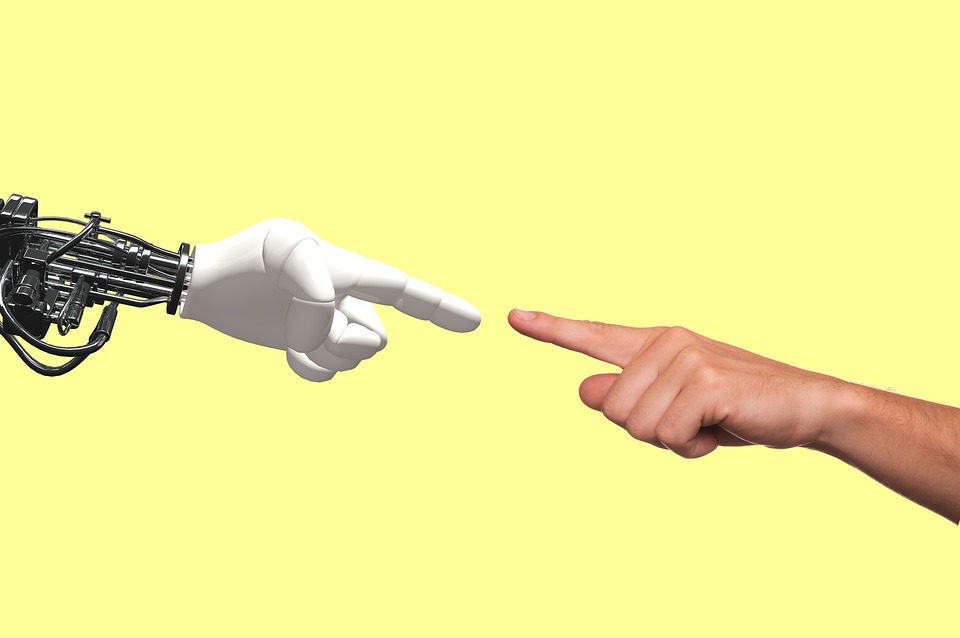
Leading in the Era of AI
How far are we from machines replacing humans?
While much of the corporate research and development of Artificial Intelligence (AI) is happening under Non-Disclosure Agreements, a recent demonstration of a personal assistant by Google CEO Sundar Pichai illustrated how advanced their AI research is . Similar research by Microsoft and a plethora of other technology companies, suggests that the impact on humans and our work will be profound.
AI is developing as a powerful driver for good; in the field of medicine, for instance, it is already accelerating the development of cures for diseases. At the same time, AI releases human potential for higher-level jobs as robots are already replacing workers performing many of the most repetitive tasks in hospitals around the world.
How does the nature of leadership change in the era of Artificial Intelligence?
This HBR article suggests that “in an AI age characterized by intense disruption and rapid, ambiguous change, we need to rethink the essence of effective leadership. Skills such as deep domain expertise, decisiveness, authority, and short-term task focus, are less critical while traits such as adaptability, resiliency and learning to lean on others are becoming important predictors of success (or key success enablers) In other words,
Leaders in the AI era, have to invest in and elevate their skills in engaging empathetically with others. It is increasingly essential for leaders to be skilled at collaborating with many stakeholders and groups – the traits often referred to as “soft skills”.
How can coaching help in preparing for the new era of AI?
Coaching is an effective modality in developing this kind of leadership traits.
Future-focused organizations are adopting coaching cultures to stay ahead. For example, read these two case studies from AFCC and GlaxoSmithKline. The International Coach Federation (ICF), the world’s leading body for advancing the art and science of professional coaching, defines coaching as “Partnering with clients in a thought-provoking and creative process that inspires them to maximize their personal and professional potential”.
Ahead of the GeekWire Summit 2018, The Washington State chapter of ICF surveyed technology leaders and executive coaches about the major challenges faced by leaders today. While there are many, our findings reveal that the challenges of today will only be growing in the era of AI. Some examples:
▪ Organizational leadership – leading teams and organizations, developing collaborative relationships
▪ Personal leadership – work/life integration, career progression, and managing transitions
The ICF WA member coaches are coaching industry leaders “from good to great”. Meet Karen and Joe, two leaders who have enjoyed the benefits of being coached by credentialed ICF coaches.
Karen, a Vice President at a national manufacturing corporation, described her challenges in leading a team to deliver business results and revenue. Her coach helped her to identify her blind spots. By pausing and seeing a bigger picture, she developed more self-awareness and became a more effective leader for herself and her team.
Vice President of Technology Services in a local organization, Joe, on the other hand, developed strategies for controlling the adrenaline rush of being the expert, and he became a better listener. He now asks more questions to truly understand customer needs – which in turn, is improving client relationships. Joe can offer more effective solutions to client issues.
While machines have already taken over the manual repetitive tasks in most industries, every human now holds an unofficial leader role in their own area. One such example is Amazon, where they say, “We use our Leadership Principles every day, whether we’re discussing ideas for new projects or deciding on the best approach to solving a problem”. Coaching, which amongst other benefits, develops the Emotional Intelligence (EQ) capacities in leaders, is very effective in preparing leaders to thrive in today’s Volatile, Uncertain, Complex and Ambiguous (VUCA) world.
This article was written with the collaboration of my colleagues at the ICF Washington State chapter for the GeekWire 2018 Summit in Seattle WA. It was originally published on the GeekWire site.
Case study 1: Automotive Fuel Cell Cooperation Corp (AFCC). AFCC credits coaching with driving a 161 percent improvement in leadership culture from 2014–2017. Specific dimensions that saw the greatest improvements included authenticity, self-awareness, achieving and systems awareness.
Case study 2: GlaxoSmithKline (GSK) – There are a lot of huge ripple effects that happen as a result of coaching in terms of empowerment, in terms of satisfaction, but also in terms of leadership effectiveness,




